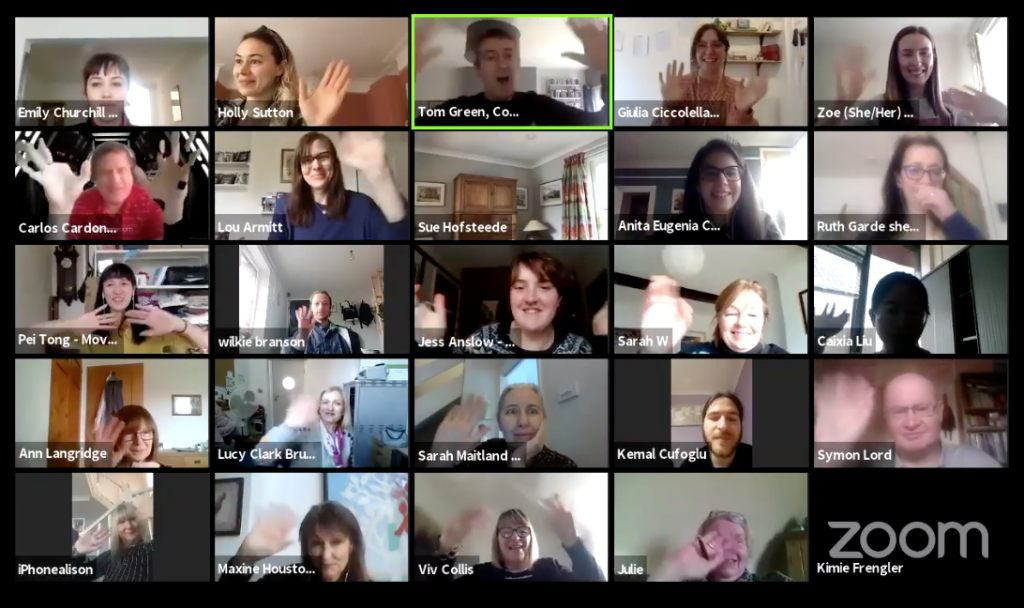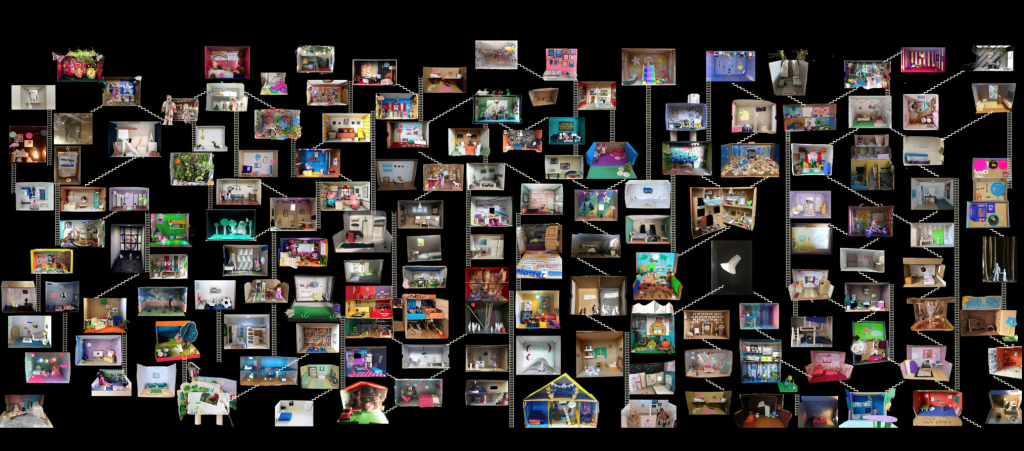Guest post by Holly Langley Sutton, Refugee Week Intern
I began my internship with Counterpoints Arts just in time for the launch of the Refugee Week ‘Slow Conference’. Pre COVID-19 the conference (which is a series of free talks and workshops to support the development of ideas and projects for this year’s Refugee Week) would have gone on for a day. This year however, to avoid zoom fatigue, the conference was spread over six weeks.
During a time when people are so isolated, the mission of building communities and tackling loneliness is even more challenging. Especially when our only points of contact are via machines.
Shortly after the Zoom begins, once all the attendees have arrived, the music stops and Curious Monkey, an award-winning theatre of sanctuary, leads a warm-up. I enjoyed watching everyone re-enact their morning routine. There is something unifying about the fact that no matter what borough, what region or even what country, our mornings pretty much always start with a stretch and a coffee.
Attendees of the Slow Conference signed up with a shared purpose of supporting and empowering their communities. Reflections on the challenges of last year’s online Refugee Week were shared as well as lessons learnt. Bonds were formed over the course of the six weeks and a new digital community took shape.
The digital divide came to the fore in 2020. For those who didn’t have internet access participating in strictly online events was impossible. During the ‘Slow Conference’ participants shared stories about how they overcame this last year, here are a few of them:
Plymouth Hope provided wi-fi access to 179 people in asylum seekers’ accommodation.
Nottingham Refugee Week put together creative activity packs and delivered them door to door to local families with limited internet access.
Clapham Park Creative Coop maintained communication via phone calls and hand-delivered art kits.
IWAW (Iraqi Women Art and War) held virtual lessons in Iraqi cuisine which meant that women in Iraq were able to join in as well.
The Giant Dolls’ House Project asked people to send in photos of their work and put together a digital collaborative social art piece.
Whilst art projects during Refugee Week will distract us from the pandemic, I hope that the global lockdown created a sense of unity that will become instrumental in social change.
Find out more about how to run effective online and ‘hybrid’ events here.
Lockdown-inspired Art
As we reflect on the past year we can appreciate the art projects that grew out of the pandemic. For example:
Although the Mafwa Theatre’s ‘Cooking with Parveen’ play was cancelled they created a podcast, recipe book and film.
BLKBRD Collective filled streets across London with murals dedicated to contributions of key workers at risk.
Have a look at more here.
Refugee Week 2021
The theme for this year’s Refugee Week is ‘We Cannot Walk Alone’, highlighting the importance of solidarity between refugees and non-refugees, and between all of our different struggles and causes. As each organisation reaches new and wider audiences this theme springs to life. In the face of COVID-19 we discovered the power of online connectivity and used it as a force to unite us.
As we approach June there is still uncertainty about exactly what restrictions will look like. However, our new found ability to adapt between on and offline and to be creative with how we reach each other is a pattern that we can repeat. I am certain that when COVID-19 is a distant memory we will keep something of value; a fluid and imaginative way of coming together.
Find out more about how to get involved in Refugee Week here.
About the Author
Holly Langley Sutton is a social historian currently studying for an MA in Migration and Diaspora Studies at SOAS.


